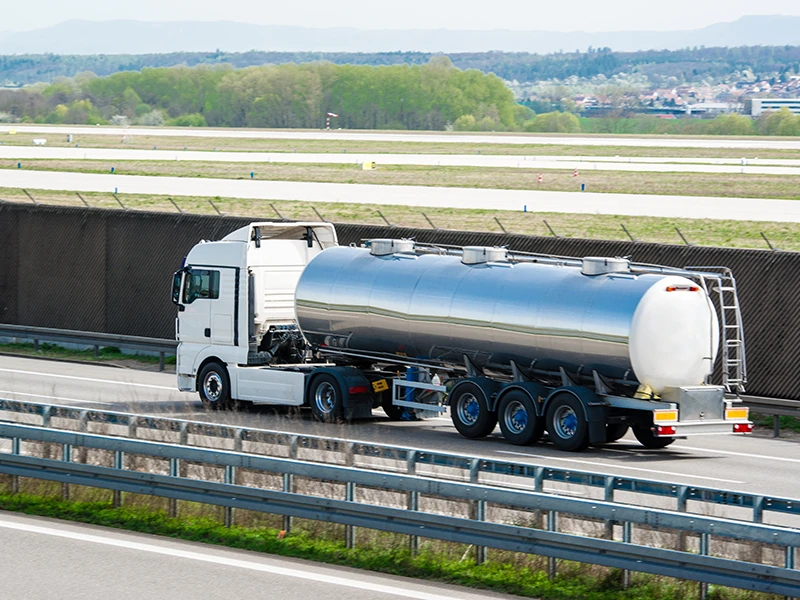
Learn who could be liable after a truck accident in Miami and what happens when more than one party is at fault.
The Miami cityscape thrives on the constant movement of commerce, with large trucks being an essential component of this economic flow. However, sharing the road with these massive vehicles comes with a heightened risk.
Alarmingly, truck accidents have been steadily increasing across the nation, with the National Safety Council reporting a staggering 49% jump in fatal crashes involving large trucks over the past decade. Florida, unfortunately, finds itself at the epicenter of this trend. With 373 deaths attributed to large truck crashes in 2021, Florida ranked third in the nation for the most fatalities in such accidents.
The aftermath of a Miami truck accident can be devastating, leaving victims with catastrophic injuries, emotional trauma, and crippling financial burdens. In the chaos of such crashes, a crucial question inevitably arises: Who is liable?
Determining liability in a truck accident can be complex, as multiple parties may share responsibility. This article delves into the potential parties who could be held accountable for a Miami truck accident, explores scenarios where blame is shared, and explains how an experienced attorney can help you navigate the legal process to secure the compensation you deserve.
Who could be liable in a truck accident?
While the truck driver is often the first person considered liable after an accident, these accidents can involve a complex web of responsibility, with some parties even sharing the blame. Below is a breakdown of the potential parties who could be liable for damages in a Miami truck accident.
Truck driver liability
Truck drivers have a significant responsibility to operate their vehicles safely due to their immense size and potential to cause catastrophic accidents. In Florida, truck drivers can be held liable for an accident if their actions or negligence directly contributed to the crash.
These are some common reasons why a truck driver might be found liable in an accident:
- Impaired driving. Operating a truck under the influence of alcohol, drugs, or even prescribed medication can lead to impaired judgment, slowed reflexes, and a higher risk of accidents. A positive blood alcohol test or evidence of drug use can be a strong indicator of driver liability.
- Distracted driving. Texting, talking on a cell phone, eating, or any activity that diverts a driver’s attention from the road can be grounds for liability. Florida has strict laws against texting while driving, and such violations can significantly strengthen a claim.
- Fatigue. Federal regulations restrict the number of hours a truck driver can operate a vehicle without a mandatory rest break. For example, according to Florida law, a commercial driver can only operate a vehicle for up to 12 hours after taking 10 consecutive hours off duty. Violating these Hours of Service (HOS) regulations and driving while excessively tired can lead to driver liability if it contributes to the accident.
- Reckless driving. Excessive speeding, tailgating, aggressive lane changes, or other reckless maneuvers significantly increase the risk of accidents. Evidence of speeding, including witness testimonies or data from the truck’s black box (event recorder), can be used to establish reckless behavior.
- Improper vehicle maintenance. Drivers are responsible for ensuring their trucks are in safe operating condition. Neglecting necessary maintenance on brakes, tires, steering systems, or other crucial components can lead to accidents and hold the driver liable, especially if such malfunctions contributed to the crash.
- Violations of traffic laws. Failing to yield, disregarding traffic signals, or any other violation of traffic laws that contributes to the accident can establish driver liability. Police reports and witness statements can be used as evidence of such violations.
Trucking company liability
While a truck driver’s negligence often takes center stage after a Miami truck accident, the trucking company that employs them can also be held liable under certain circumstances. Here’s how a trucking company’s actions or inactions might contribute to an accident and lead to their responsibility:
- Inadequate driver training. Trucking companies have a duty to ensure their drivers receive proper training on safe driving practices, vehicle operation, and handling emergencies. Failing to provide adequate training, especially for new drivers, can increase the risk of accidents for which the company might be liable.
- Hiring unqualified drivers. Trucking companies have a responsibility to conduct thorough background checks and verify driver qualifications before hiring. Hiring drivers with a history of reckless driving, safety violations, or substance abuse can significantly increase the risk of accidents and potentially make the company liable.
- Pressure to violate hours of service regulations. Trucking companies that pressure drivers to exceed federal Hours of Service (HOS) regulations or falsify HOS logs are putting drivers and others on the road at risk. Accidents caused by driver fatigue due to HOS violations by the trucking company could lead to liability issues for them.
- Improper truck maintenance. Trucking companies are responsible for maintaining their vehicles in a safe operating condition. Neglecting regular maintenance schedules, ignoring safety recalls, or allowing drivers to operate trucks with known mechanical issues could lead to trucking company liability in an accident.
How are commercial truck accidents different than other accidents?
Commercial truck accidents differ in key ways from car accidents. Learn how this could affect your compensation after an accident in Miami.
Truck or parts manufacturer liability
Sometimes, malfunctions or defects in the truck itself can be the cause of the crash, leading to liability for the manufacturers of the truck or its component parts. These are some common reasons that truck manufacturers and parts manufacturers could be held liable in a Florida truck accident:
- Defective truck design. If a design flaw in the truck itself contributes to the accident, the manufacturer could be liable. Examples might include faulty braking systems, inadequate lighting systems, or blind spots caused by a poorly designed truck cab. Expert testimony from engineers can be crucial in establishing a design defect as a contributing factor.
- Manufacturing defects. Errors during the manufacturing process can lead to defective components that compromise the truck’s safety. This could involve malfunctioning brakes due to faulty assembly, faulty steering components, or defective tires that burst unexpectedly.
- Failure to warn of known defects. If a truck manufacturer is aware of a safety defect in a particular model but fails to issue a recall or warn trucking companies and drivers about the potential dangers, they could be held liable if that defect contributes to an accident.
Cargo loading company liability
Another crucial party that can play a significant role in trucking accidents is the cargo loading company. Improperly loaded cargo can drastically alter a truck’s stability and handling, significantly increasing the risk of accidents. Some reasons that a cargo loading company might be liable for a truck accident include:
- Unsafe weight distribution. Cargo weight needs to be evenly distributed throughout the truck’s trailer to maintain proper balance. An improperly loaded trailer with too much weight concentrated in the back or unevenly distributed across the axles can cause the truck to tip over during turns or maneuvers. Evidence from weighbridge tickets and witness statements of cargo loading practices can be used to establish improper weight distribution.
- Unsecured cargo. Cargo that is not properly secured with straps, tie-downs, or other restraints can shift during transit. This shifting cargo can create an imbalance, obstruct the driver’s vision, or even break free and become a dangerous projectile on the road, causing accidents. Police reports, photos of the accident scene, and witness testimonies can help establish if cargo was improperly secured.
- Loading cargo exceeding weight limits. Trucks have designated weight limits to ensure safe operation. A cargo loading company that exceeds these limits by overloading the truck can significantly impact its handling and stability, increasing the risk of accidents. Documentation from weighbridge tickets and truck weight restrictions can be used to prove overloading.
Government entity liability
A government agency in Florida could be held liable for a trucking accident under several conditions related to its responsibilities for road maintenance and traffic management. Here’s how a government entity might be found liable:
- Poor road maintenance. The government could be liable if a truck accident is caused by poorly maintained road conditions, such as potholes, uneven surfaces, or eroded roadways, which it knew about or should have known about but failed to repair.
- Inadequate traffic controls. If a truck accident occurs due to malfunctioning traffic signals, missing road signs, or unclear construction zone markings, the responsible government entity could be held accountable for failing to ensure safe and clear traffic control.
- Negligence in construction zones. Government entities or their contractors are responsible for safety in road construction zones. If they do not provide sufficient warnings, proper signage, or safe navigation through these zones and an accident results, they may be liable for any damages caused.
Please note that claims against government entities must adhere to strict procedural rules and filing deadlines, so it’s important to consult with an attorney who has experience in such cases to increase your chance of a successful claim.
Florida personal injury claims process: Timeline & steps
A guide to help you understand the Florida personal injury settlement process so you know what to expect.
How is compensation awarded after a Florida truck accident if multiple parties share the blame?
In Florida, when more than one party shares the blame for a truck accident, compensation can still be sought by any party that is less than 51% at fault due to the state’s adoption of a modified comparative negligence approach.
Under this rule, each party’s compensation is reduced by their percentage of fault, but a party cannot recover any damages if they’re found to be 51% or more responsible for the accident.
Here’s an example scenario of a truck accident involving 3 partially negligent parties:
- A truck driver who was speeding at the time of the accident is found to be 40% at fault.
- A driver in a car who collided with the truck after failing to signal while changing lanes is found to be 30% at fault.
- A third driver who was following too closely behind the car and could not avoid the collision is also found to be 30% at fault.
If the car driver who initially hit the truck suffered $100,000 in damages, under Florida’s modified comparative negligence rule, they could still recover compensation, but their recoverable damages would be reduced by their percentage of fault. In this case, the driver was 30% at fault, so their compensation would be reduced by 30%, allowing them to recover 70% of their damages, which amounts to $70,000.
This system ensures that each party’s liability is proportional to their contribution to the accident, promoting fairness by not overly penalizing or rewarding any party based on their degree of fault.
Let Redondo Law help with your Miami truck accident claim
The reality is that determining fault and the percentage of blame for each party in a truck accident can be complicated.
At Redondo Law, experienced Miami truck attorney Mike Redondo understands the nuances of Florida’s truck accident laws and is adept at navigating complex liability issues. Mike can investigate the cause of the accident, gather evidence to support your case, and negotiate with insurance companies on your behalf to ensure you get maximum compensation.
Contact Redondo Law today to schedule a free consultation to learn how we can help you get the compensation you deserve.
References
Florida Hours of Service Rules. (n.d.). Florida Department of Highway Safety and Motor Vehicles. Retrieved April 12, 2024, from https://www.flhsmv.gov/florida-highway-patrol/commercial-vehicle-enforcement/safety-enforcement/florida-hours-of-service-rules/
Large Trucks. (n.d.-a). Injury Facts. https://injuryfacts.nsc.org/motor-vehicle/road-users/large-trucks/data-details/
Large Trucks. (n.d.-b). Injury Facts. https://injuryfacts.nsc.org/motor-vehicle/road-users/large-trucks/



